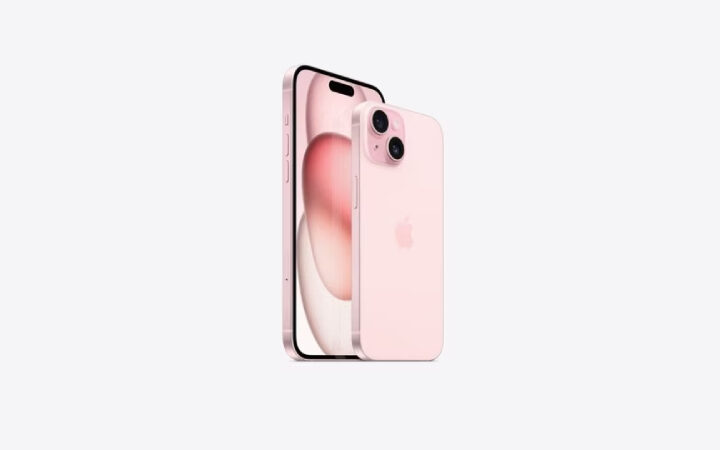Fitbit has unveiled the products that all expected to see after numerous leaks and a not-so-subtle teaser yesterday: the Sense 2, the Versa 4, and the Inspire 3. Although Fitbit is releasing new software at the same time as new hardware, this update focuses more on making small tweaks and improvements to what you already know than it does on offering anything novel. Oh, and the Versa 4 and the Sense 2 have physical buttons!
Both the $229.95 Versa 4 and the $299.95 Sense 2 have modest design updates. To begin with, both are lighter and thinner. Both devices also have a button that is higher up, as well as a strap attachment point. The Sense 2 uses “vaporized electrodes” to integrate its health sensors within the device’s display. However, it has little effect on how users utilise the device. More of an engineering achievement was made in order to fit everything into a slim, beautiful package.
To detect stress throughout the day, the Sense 2 adds a new continuous electrodermal activity (cEDA) sensor. With the Sense, Fitbit debuted stress tracking in 2020, but it was more of a spot-check measurement. The new sensor enables continuous, all-day stress tracking that informs you when your stress levels are growing too high. Then it makes suggestions like guided breathing exercises, mood journals, and mindfulness practises. Fitbit also claims that you may tailor when you receive alerts, allowing you to choose not to receive them, for example, if you have a crucial presentation.
Fitbit is adding a few more exercise modes as part of software updates, increasing the total to 40. These include activities like dancing, HIIT, and weightlifting. Additionally, although it’s not a totally new function, Fitbit Premium customers get access to animal-based sleep profiles to aid in analyzing their sleeping habits. (Users of Sense 2 and Versa 4 will additionally receive a unique clock face depicting their sleep animal.) Similar to Samsung’s sleep coaching feature on the Galaxy Watch 4 and Galaxy Watch 5 series, which similarly assigns users animal-based profiles to improve their sleep, it helps users get a better night’s sleep. Along with the Sense 2, Fitbit just received FDA approval for passive cardiac rhythm monitoring for atrial fibrillation.
Fitbit also showed a new user interface with Tiles that remarkably resemble those in Wear OS 3. The company declined to provide a firm release date but added that turn-by-turn directions using Google Maps and Google Wallet are also “coming soon.” This shouldn’t come as a surprise considering Google’s recent wearable push, but code this week also appeared to indicate that Google Wallet would soon be available on the Sense 2 and Versa 4.
There are also some important changes for the $99.95 Inspire 3. Fitbit has primarily replaced the monochrome LED with a colour OLED display and included a SpO2 sensor. Fitbit claims that the Inspire 3’s battery life will stay at 10 days despite switching to a more power-hungry display. If you enable the always-on display, that does reduce to three days, said Fitbit representative Jonathan Moll (AOD). (The predicted survival times for The Sense 2 and Versa 4 are six days without AOD and three days with.)
Until people can see how the Sense 2, Versa 4, and Inspire 3 fare in testing, we’ll reserve judgement. On paper, this update appears to be quite iterative, especially when compared to Fitbit’s 2020 launches of the Sense, Versa 3, and Inspire 2. Given that the Google-Fitbit merger was still in the works at the time, and the firm was having trouble moving its products, that lineup came as a welcome surprise from the manufacturer.
This time, it’s more difficult to predict what function these fitness-focused devices will serve in Fitbit’s future. This fall, not only are we anticipating the release of the Pixel Watch, but also a new Fitbit integration. A premium Wear OS Fitbit watch has also been promised by CEO James Park, though we have yet to see it in the person.
All three devices come with a six-month trial of Fitbit Premium and are now all up for preorder. The cost of all three gadgets will remain the same, according to Fitbit, even though price increases due to inflation have started to affect consumer technology. Retail prices for the Sense 2 are $299.95, the Versa 4 is $229.95, and the Inspire 3 is $199.95.
- NBA Rookie of the Year Favorite: Former UConn Huskies Star Guard - December 17, 2024
- Where to Watch the ‘Yellowstone’ Finale Without Cable: A Simple Guide - December 14, 2024
- Wendy’s is celebrating the festive season with 12 days of ‘Bow-Go’ deals exclusively on the app - December 13, 2024









